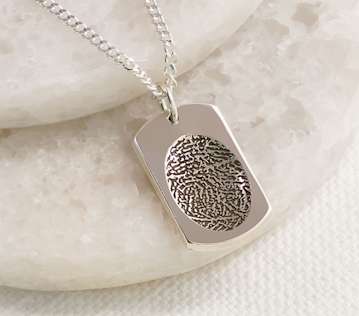
Mother’s Day after the death of a child
Mother's Day can be a really difficult time if you, or someone close to you, have experienced the death of a child. We've asked bereavement experts for their advice to help you through this time.
Mother’s Day and other special occasions can be very difficult if you’re mourning the death of a child. Grieving is hard all year round, but on days when everyone else is celebrating, it can make your loss feel more intense.
Grieving on Mother's Day
It’s not just the day itself that is difficult. Often, it’s the days leading up to Mother’s Day and the constant reminders – online, on tv and in shops – which can be triggers and cause the most upset.
Over time, your feelings and needs may change. You may have had a lot of support around the time of the funeral, but as time goes on, this can trail off. Try to set aside time for some self-care and let your family and friends know how you feel about Mother’s Day and what they can do to support you.
Choose how you spend the day
It’s okay to do whatever you want to do on Mother’s Day – whether that’s ignoring the day and staying home, or getting together with friends and family to celebrate.
‘To help you get through the day there are a few things I’d suggest to people,’ says Andy Langford, Clinical Director at Cruse Bereavement Support. ‘Firstly, don’t feel pressured to do anything you don’t want to do, this may include being part of family plans or bringing attention to the day if you don’t want to.’
Mother’s Day can be another opportunity to celebrate your child. You could share stories with family and friends or take time to look through photos or videos. Often when someone dies, it's common for people to stop saying their name around the grieving family for fear of upsetting them. If it gives you comfort, tell your family and friends that you’d like to hear your child’s name spoken out loud. It can be a gentle reminder that your child is still loved and remembered by everyone.

Ways to mark Mother’s Day when your child has died
There are a number of ways you can honour your child on Mother’s Day. 'Practically you could light a candle or plant a flower to remember your child, visit a place that was special to them or write a letter or a card. This can also help,’ says Andy.
Here are some other ideas:
- Volunteer or support a foundation in your child’s name.
- Wear a memorial item like a personalised piece of jewellery to always keep them close.
- Visit their grave or where their ashes are scattered and take some time to think about happy memories of them.
How to celebrate Mother’s Day if you have other children
Mother’s Day can be challenging when you have other children. Like grownups, every child deals with grief differently and there’s no right or wrong way for them to act. Talk to your children about bereavement, communicate how you’re feeling and encourage them to express their feelings, too. And if you need to cry, that’s okay. Crying in front of your children shows them that it’s healthy and that it’s okay to cry and express themselves.
If you’re not sure how you will feel on Mother’s Day, set some time aside on another day to create new memories with your other children. You could go on an adventure holiday or a weekend away, visit a kid’s museum, make their favourite meal, or spend an afternoon in the park or at the beach. The day could be a chance for them to open up and share their feelings, or simply just a day to enjoy time together.
Remember, you’re not alone. ‘If you’re struggling with your grief, then it’s important to ask for help. This might mean speaking to friends or family, your GP or contacting Cruse to speak to a trained bereavement volunteer,’ says Andy. Cruse offers support via their online CruseChat, over the phone with their free national helpline and one-to-one in-person support in over 80 local areas. Visit Cruse to find out more.
What to say to a grieving mother on Mother’s Day
While Mother’s Day is a considered to be a day of celebration by most, it can act as a painful reminder of loss for those who have experienced the death of a child. The single most important thing you can do for someone who has experienced child loss is recognise that they are still a mother.
The simple act of sending a Mother’s Day card or hugging and greeting a grieving mother with the words ‘Happy Mother’s Day,’ shows that you acknowledge their role as a parent. Another great way to show support for a grieving mother on Mother’s Day is to use their child’s name in conversation. Doing this helps to keep their child’s memory alive and shows that you haven’t forgotten about the pain they are experiencing.
If you’re looking for the right words to say when reaching out to a grieving mother, try some of these ideas:
- I lit a candle for [insert name]. Me and my family are thinking of you today.
- I can’t imagine how difficult this day must be for you. I want you to know that I’m thinking of you.
- [Insert name] may have only been with us for a short time, but they left such an impression on our hearts.
- [Insert name] would be so proud of you today.
- I know this day never gets any easier, so I’m here to help with whatever you need.
- I was thinking about you and [insert name]. They were such a special child and I’m so glad I got to meet them.
Here are other bereavement support services available to help:
Your child’s death may leave you grieving your identity as a mother. Or you may feel like you can no longer honour Mother’s Day without your child. But regardless of your child’s age, how long ago they died, whether you suffered a miscarriage or stillbirth, you’ll never stop being a mother.


